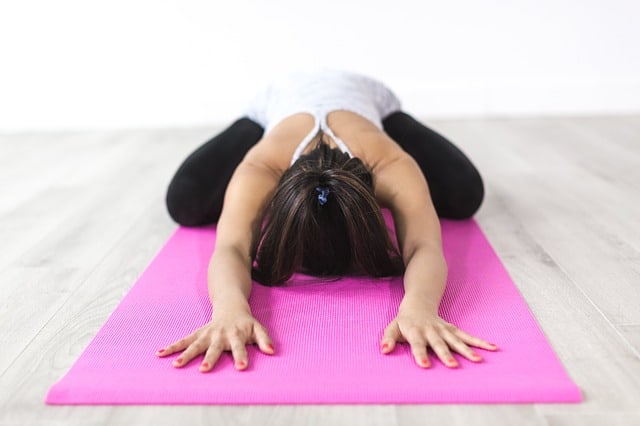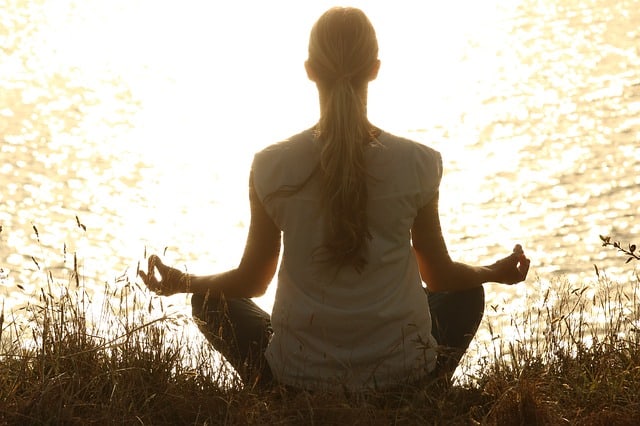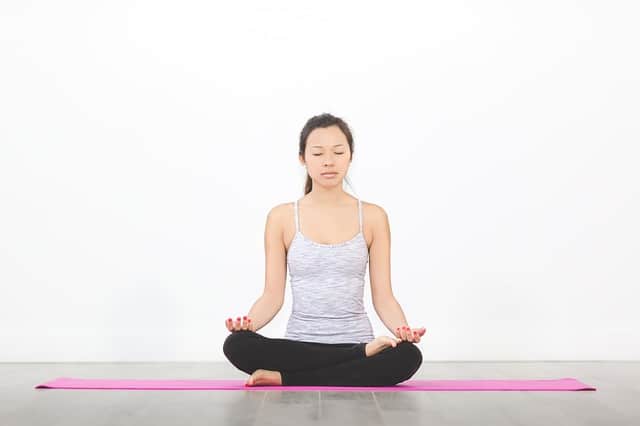The Benefits of Meditation and How to Start
Disclosure: We use affiliate links and may receive a small commission on purchases.
 The Benefits of Meditation and How to Start
thefitbay.com
The Benefits of Meditation and How to Start
thefitbay.com
Let’s face it: The world is getting crazier every day, and our lives are following suit. Every year seems to get busier, with more activities, more commitments, projects, and events that demand much of our time. We are constantly being inundated with information, sights, and sounds. Advancements in technology have made it so that we are always connected, can be contacted at all hours, and are only a text, call, or other notification away from something else that takes up our time and energy. As a result, we have become increasingly stressed and anxious, and it is wreaking havoc on both our mental and physical health.
It is more important now than ever before for each of us to take a few moments every day to meditate and focus on ourselves and our personal well-being. If you are at all on the fence about meditation, this is why you should start meditating and how.
The Benefits of Meditation
There are many benefits of meditation for both your mind and your body. Chances are you are in desperate need of at least one of them.
Improved Ability to Handle Stress.
Meditation can’t take away your unhelpful co-worker or have that difficult conversation with your child for you, but it can help you to deal with those stresses in a more calm, productive manner. Studies have shown that people who practice meditation have an increased ability to regulate their emotions and control their own nervous systems.
Improved Ability to Focus and Concentrate.

With the hundred things all vying for our attention each day, it can be extremely difficult to block out the noise and focus on the task immediately at hand. Meditation has shown to increase one’s ability to concentrate and even improve memory, helping increase productivity and quality of work done.
Improve Confidence and Happiness.
Much of the stress we experience each day is self-inflicted and caused by continual comparison of us versus everyone else. Meditation increases your self-awareness and makes you better able to both accept and work on your flaws. This not only makes you more comfortable in your own skin, but it also takes the pressure off of trying to be perfect and instead of trying to be just a little better than the day before. When you accept yourself for who you are and are focused on growth instead of perfection, you become happier and less anxious.
Improves Aging.
Regularly practicing meditation improves both the mental and physical aspects of aging. It improves cognitive ability and fights back against age-related memory loss, as well as decreases stress that causes our bodies to age faster.
Improves Physical Health.
Stress and worry have a number of effects on the body, including higher blood pressure, inflammation, and a decreased immune system. Meditation is extremely relaxing, reducing stress and opening up your blood vessels, which consequently decreases blood pressure.
While all of these benefits sound wonderful, Meditation can be a daunting and seemingly impossible task for many of us. Thankfully, there are many easy ways you can start your meditation practice that doesn’t involve sitting in a quiet room for an hour thinking about nothing.
How to Start Meditating

When you first begin meditating, don’t worry about trying to do so for a long period of time, and don’t worry about doing it “right”. Meditation is supposed to help you relax, not cause you even more stress. To get yourself on track for daily meditation, you must first:
Pick a time of day: Try to keep it the same time each day to help you get on a schedule. For most people, first thing in the morning is best as it sets you up for your day and you won’t accidentally forget to do it, however, many enjoy meditating before bed as it clears their mind after a busy day and helps them sleep. Whenever works best for you is when you should start.
Pick a spot: When most picture meditation, they imagine someone sitting cross-legged in a beautiful nature setting, like a garden, by the ocean, or on top of a mountain. While that would be lovely, it is also not always realistic. Instead, find a comfortable, quiet place in your home that has minimal distractions. It doesn’t have to be the same place every day, though some find consistency helpful at the beginning.
Pick a position: People tend to get hung up on sitting the “right” way to meditate. In general, so as long as you’re comfortable and inwardly attentive. You can sit on the floor, with a cushion or pillow tucked under your bum, or on the edge of a chair, bench, or bed. Whatever you choose to sit on, keep your posture tall and your back straight, without leaning on the back of the chair. Don’t worry about hand position, again just ensure you are comfortable. Your eyes can be opened or closed, though it is best to point them downwards to avoid distraction. Sit cross-legged however you’d like, or in a position that is comfortable for you.
The Meditation Process

When you first start meditating, you will be shocked at how difficult it can be to keep your mind from wandering. This is why it is best to start off with only a couple of minutes a day and work your way up. For your first week, start with only two minutes of meditation, and continue to add minutes on a weekly basis or when you feel ready to go for longer.
Step 1: Ensure all electronics and other distractions are not in the room. Get comfortable and in position, and set a timer for 2 minutes, ensuring you have picked a gentle alarm. If you are using your phone as a timer, put it on airplane mode for the duration of your meditation.
Step 2: Bring your attention to your breathing. Keeping your mouth closed, focus on long, full breaths going in and out of your nose. You may wish to count, or just focus on inhaling and exhaling, whatever you need to do to maintain your focus here.
Step 3: Do your best not to think. When your mind wanders, which it will, bring your attention back to your breath. Don’t analyze or over-think anything, just continue to focus on your breath until the alarm goes off.
The Bottom Line
Remember, meditation is called a practice, meaning it must be completed daily in order for you to improve and experience the benefits. Taking even just a few minutes each day to clear your mind and focus on yourself will improve your self-awareness, acceptance, confidence, and in general your mental and physical health. All you need to do now is begin.










